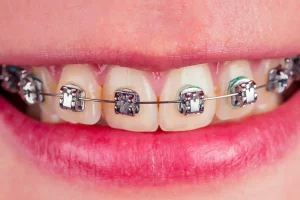Keeping your teeth and gumline hygienic can help you get rid of bad breath and gum diseases. So dental hygiene is very important, and the dentist recommends each of their patients go through a deep teeth cleaning process twice a year. The process of deep cleaning of teeth is also known as periodontal scaling or root planing. The difference between normal teeth cleaning and deep teeth cleaning is that normal teeth cleaning is done just above the gum line, but in the case of deep teeth cleaning, the cleaning is done beyond the gum line and the roots of the teeth. Please read this post to learn in detail about deep cleaning of teeth, its benefits, and when you need to deep clean your teeth.
What is Deep Teeth Cleaning?
Deep teeth cleaning is the process of getting rid of plaque, tartar, and bacteria below the gumline until the roots of your teeth using hand scalers or ultrasonic instruments.
The dentist recommends deep cleaning teeth once every six months. It can be done in one visit and normally takes one or two hours to complete.
The process of deep cleaning teeth consists of two steps,
- Periodontal scaling: In this first process, plaque, tartar, and bacteria are removed from both the above and below the gumline.
- Root Planing—In this second step, the tooth roots are smoothed to help the gums reattach and prevent bacteria from accumulating again.
When is Deep Cleaning of Teeth Needed?
Deep cleaning of teeth is needed when you are affected by the second stage of gum disease next to gingivitis. At this second stage, the plaque and tartar extend from the gumline and build below the gumline till the roots. At the initial stage of gum disease, standard cleaning is enough to remove the plaque and tartar.
Because the advanced stage of gum disease cannot be treated at home with home hygiene, consulting with a dentist and getting a professional to clean the teeth deep is recommended. Dentists will recommend a deep cleaning of teeth when you have the following symptoms,
- If you have bleeding gums, especially while brushing or flossing.
- If your gums appear red, swollen, or tender.
- If you experience persistent bad breath despite regular brushing.
- If your dentist detects deep gum pockets (more than 4mm) around your teeth.
- There is bone loss or gum recession visible on X-rays.
- You have a history of periodontal disease or frequent plaque buildup.
Benefits of Deep Teeth Cleaning
Dental professionals recommend deep teeth cleaning if you have developed gum disease. Because plaque, bacteria, and tartar cannot be removed below the gumline, this helps treat gum diseases (gingivitis and periodontitis).
By removing plaque buildup, persistent bad breath is eliminated. Preventing gum disease also helps stop gum recession and bone loss. Overall, this helps reduce the risk of loose or lost teeth.
The deep cleaning not only removes plaque but the other benefit of going under deep cleaning helps in smoothening the tooth roots. This is done so that the gums heal and reattach properly.
So, deep teeth cleaning not only removes bacteria, plaque, and tartar but also makes the gum healthier and prevents bacteria from spreading into the bloodstream.
Negatives of Deep Teeth Cleaning?
Deep teeth cleaning treats gum disease and makes gums stronger. There are some disadvantages of deep teeth cleaning. They are,
- Tooth Sensitivity – After the procedure, your teeth may become more sensitive to hot and cold temperatures, which can last for a few days or weeks.
- Gum Soreness & Bleeding – The gums may feel tender, swollen, or bleed slightly after the cleaning.
- Risk of Infection – In rare cases, bacteria released during the cleaning can enter the bloodstream, posing a risk for individuals with weakened immune systems.
- Gum Recession – Removing tartar buildup may expose the roots of the teeth, making them appear longer and more prone to sensitivity.
- Multiple Visits May Be Required—In severe cases of gum disease, the procedure might need to be performed in multiple sessions, increasing treatment time.
Who Should Avoid Deep Cleaning of Teeth?
While deep cleaning is beneficial for many, certain individuals may not need or should avoid the procedure, including:
- Those with healthy gums and no signs of gum disease.
- People with weakened immune systems (unless advised by a dentist).
- Individuals with severe dental anxiety, unless properly managed.
- Scaling may cause discomfort in patients with thin or sensitive enamel.
You need not worry about these, as your dentist may examine you and determine whether deep cleaning is necessary.
Takeaway
Deep cleaning of teeth is very beneficial as it helps treat gum disease and makes the gums healthier. Most dental professionals recommend deep cleaning your teeth after examining you. So consult your dentist to go for a diagnosis and get a deep cleaning of your teeth. Visit Oris Dental Center in Dubai to clean your teeth deep using specialized techniques with the help of professional experts.





